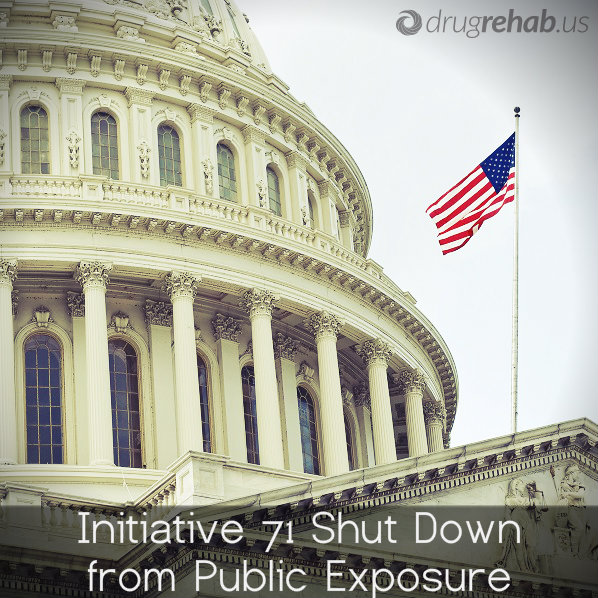D.C. Council’s Plan To Discuss Marijuana Legalization Shut Down
The Washington D.C. City Council earlier this year elected to cancel a special public hearing where marijuana legalization in the district was to be discussed. In doing so, it was heeding the advice of Dist. Atty. Karl A. Racine, who told council members they would be violating the law by publicly discussing a topic that had been ruled off-limits by Congress.
Marijuana legalization is now a huge issue in the nation’s capital, after the district’s citizens voted to lift some of the sanctions against the drug in last November’s election. D.C. voters overwhelmingly approved a ballot referendum called Initiative 71, which would decriminalize the possession of up to two ounces of marijuana. If allowed to go into effect, it would also allow D.C. residents to grow up to six marijuana plants at home for personal use.
Marijuana Legalization And Regulation Act Of 2015 Bill Shut Down From Public Exposure
For the dictates of Initiative 71 to become reality, the City Council would need to create a system to supervise, regulate and license all activities related to the cultivation, manufacture and legal sale of marijuana products within the Washington, D.C. area. And recently four council members introduced a bill called the Marijuana Legalization and Regulation Act of 2015, which would have set up a framework to do just that.
 This was to be the subject of a hearing in February. But the council decided to take its discussion behind closed doors, where public exposure would be kept to a minimum.
This was to be the subject of a hearing in February. But the council decided to take its discussion behind closed doors, where public exposure would be kept to a minimum.
While states have the right to pass laws without federal government interference, elected officials in the District of Columbia must submit all such legislation to Congress for final approval. With both the House and Senate under the control of Republicans, who almost universally oppose drug legalization, it has been assumed from the beginning that D.C.’s attempt to change its marijuana laws would be vetoed—and that’s exactly what happened. When Congress passed its annual budget in December, a clause was included that prohibited taxpayer funds—either federal or local—from being used to implement any changes in drug laws.
The D.C. council members were fully aware of these restrictions when they planned this hearing and when their bill to create a manufacture-and-distribution network was first introduced. But they wanted to have a sensible and comprehensive action plan in place in the event that a new Congress with a more progressive attitude were to come into power.
But according to Racine, even discussing the issue could be interpreted as defying the will of the nation’s most powerful legislative body. He told the D.C. council members that their planned public discussion might violate another congressional edict called the Anti-Deficiency Act, which forbids lawmakers and bureaucrats in the district from spending tax funds on actions banned by the federal government. Sharing information and opinions in private meetings would be protected by the First Amendment, Racine declared, but pushing the legalization of marijuana even one step closer to reality would put council members squarely in the line of fire. Racine claimed they might be subject to fines or jail sentences if they went ahead with their original plan.
Racine’s opinion was not shared by D.C. council staff attorney V. David Zvenyach. He saw nothing in existing law that would prevent council members from planning for future contingencies. Given this backdrop, it is not surprising that several members of the council strongly disagreed with the decision to cancel the public hearing. Chalking the whole brouhaha up to unwanted congressional meddling, the members of this group were outraged by what they saw as intolerable interference in the affairs of an independent city.
Initiative 71 And The War On Drugs
Initiative 71 seems doomed to irrelevancy as long as Republicans maintain control of Congress—or as long as the Republican consensus remains hostile to any loosening of existing drug laws.
It is noteworthy, however, that Obama administration drug czar Michael Botticelli recently stated his opinion that Initiative 71 should be allowed to go into effect. This represents a change from the past, when Democrats and Republicans were united in their determination to continue the war on drugs without compromise. Winds of change are in the air, and while the immediate future of Initiative 71 doesn’t seem particularly bright, it is likely only a matter of time before the will of the people carries the day.
Find Out Why No States Should Be Legalizing Recreational Marijuana



